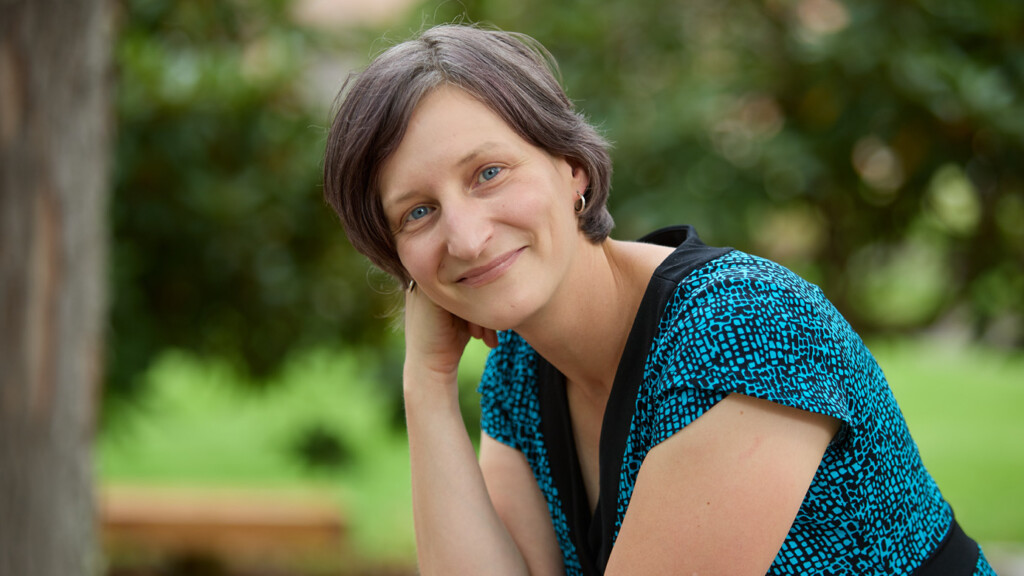Page 27 • (1,312 results in 0.02 seconds)
-
Grad School news for Pacific Lutheran University.
From PLU History to Grad School in the Big Apple! Thinking about graduate study in history? Pacific Lutheran University history majors have an excellent track record when it comes to earning an M.A. or a Ph.D. (or both) in history. I recently touched base with Carli Snyder, ’17, about her first year in grad school.… August 20, 2018 Grad School
-

In the summer of 2016, Rev. Jen Rude and her spouse Deb packed their things and drove two thousand miles West on Interstate 90 to a new home and a new call. Six-and-half years later, Rude is no longer PLU’s “new pastor from Chicago.” Now…
. Thinking about how we engage and embrace religious and spiritual diversity. That’s really interesting. How do you differentiate between interfaith and religious and spiritual diversity? Interfaith assumes that someone has a tradition, and then they come together and communicate across religious and perhaps cultural differences. More and more, the reality seems to be that our students don’t have an established religious identity. This work isn’t necessarily about connecting a Buddhist, a Christian, a
-
Alice Steinglass news for Pacific Lutheran University.
Alice Steinglass Visits October 9 for Workshop and Lecture Computer science drives innovation throughout the US economy, but the subject remains neglected or marginalized in K-12 education. Can more be done to improve student access to this important way of thinking? Please join Alice Steinglass of Code.org on October 9, 2018 at Pacific Lutheran… October 1, 2018 Alice SteinglassCode.orgcomputer science educationDale E. Benson LectureInnovation Studies
-
computer science education news for Pacific Lutheran University.
Alice Steinglass Visits October 9 for Workshop and Lecture Computer science drives innovation throughout the US economy, but the subject remains neglected or marginalized in K-12 education. Can more be done to improve student access to this important way of thinking? Please join Alice Steinglass of Code.org on October 9, 2018 at Pacific Lutheran… October 1, 2018 Alice SteinglassCode.orgcomputer science educationDale E. Benson LectureInnovation Studies
-
Dale E. Benson Lecture news for Pacific Lutheran University.
Alice Steinglass Visits October 9 for Workshop and Lecture Computer science drives innovation throughout the US economy, but the subject remains neglected or marginalized in K-12 education. Can more be done to improve student access to this important way of thinking? Please join Alice Steinglass of Code.org on October 9, 2018 at Pacific Lutheran… October 1, 2018 Alice SteinglassCode.orgcomputer science educationDale E. Benson LectureInnovation Studies
-
computer science education news for Pacific Lutheran University.
Alice Steinglass Visits October 9 for Workshop and Lecture Computer science drives innovation throughout the US economy, but the subject remains neglected or marginalized in K-12 education. Can more be done to improve student access to this important way of thinking? Please join Alice Steinglass of Code.org on October 9, 2018 at Pacific Lutheran… October 1, 2018 Alice SteinglassCode.orgcomputer science educationDale E. Benson Lectureinnovation studies
-
Dale E. Benson Lecture news for Pacific Lutheran University.
Alice Steinglass Visits October 9 for Workshop and Lecture Computer science drives innovation throughout the US economy, but the subject remains neglected or marginalized in K-12 education. Can more be done to improve student access to this important way of thinking? Please join Alice Steinglass of Code.org on October 9, 2018 at Pacific Lutheran… October 1, 2018 Alice SteinglassCode.orgcomputer science educationDale E. Benson Lectureinnovation studies
-
Major in Philosophy Minimum of 32 semester hours, including: PHIL 499 Two courses from: PHIL 311, 312, 313, 314 Five additional PHIL lower- or upper-division courses (20 semester hours) GLST 325 may
Introduces philosophy by considering perennial topics and issues, such as what makes an action right or wrong and whether belief in God is reasonable. Includes a focus on developing skills in critical and systematic thinking. (4) PHIL 125 : Ethics and the Good Life - VW Major moral theories of Western civilization, including contemporary moral theories. Critical application to selected moral issues. (4) PHIL 128 : Politics and the Good Society - VW An examination of major political theories in the
-
Jillian graduated with a BA in Economics and a BBA in Business Administration with a concentration in Marketing. She is starting work at Ann Clark Ltd as their Digital Marketing Analyst.
switch to an economics major with mathematics and statistics minors. My economics degree has instilled in me critical thinking, analytical, and communication skills. These skills allow me to make meaningful contributions to my current job as a Financial Analyst II at MultiCare Health System in Tacoma, WA where I work with patient-level and hospital cost data. I am grateful for my undergraduate training in economics at PLU, and truly believe that I wouldn’t be working at my dream job had it not been
-

Pacific Lutheran University will host the Steen Family Symposium for Environmental Issues and Earth and Diversity Week April 17-23 . Series events will explore the theme of “Sowing Resilience in Fractured Land.” Guest speakers, dialogues, and hands-on activities will invite attendees to examine the wide-ranging…
impact that the violence of natural resource extraction has on ecosystems, communities, and individuals.Steen Family Symposium Steen Family Symposium on Environmental Issues April 17-19 | Free and open to the public Established in 2022 through a gift from David ‘57 and Lorilie Steen ’58, the Steen Family Symposium brings informed speakers who challenge current thinking and propose healthy change to the PLU campus for the purpose of contributing to educate for “lives of thoughtful inquiry, service
Do you have any feedback for us? If so, feel free to use our Feedback Form.


